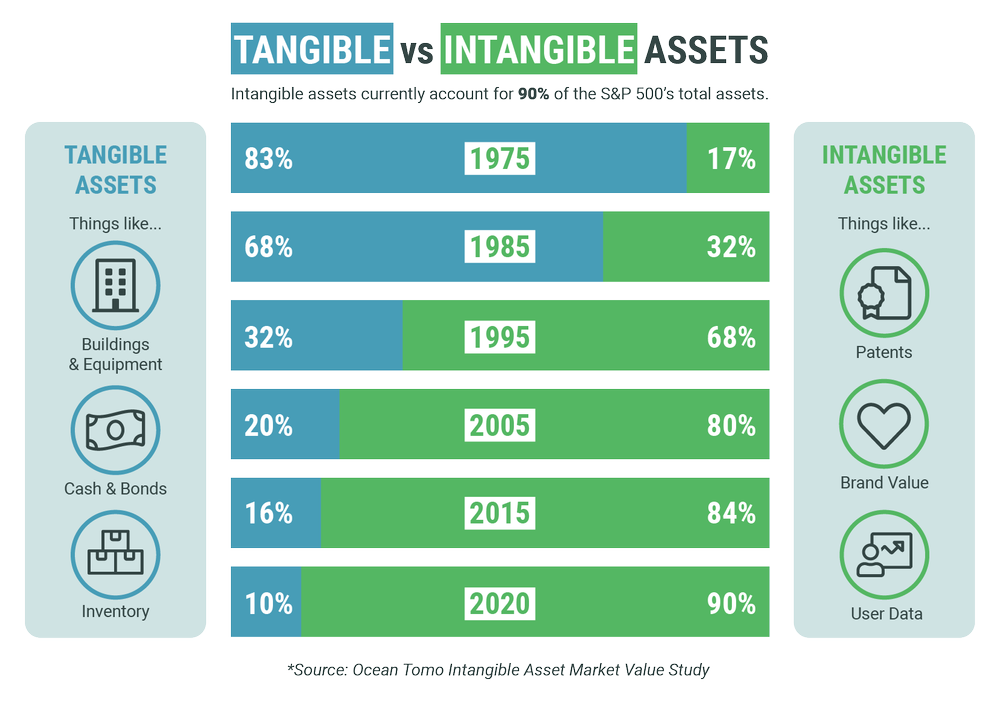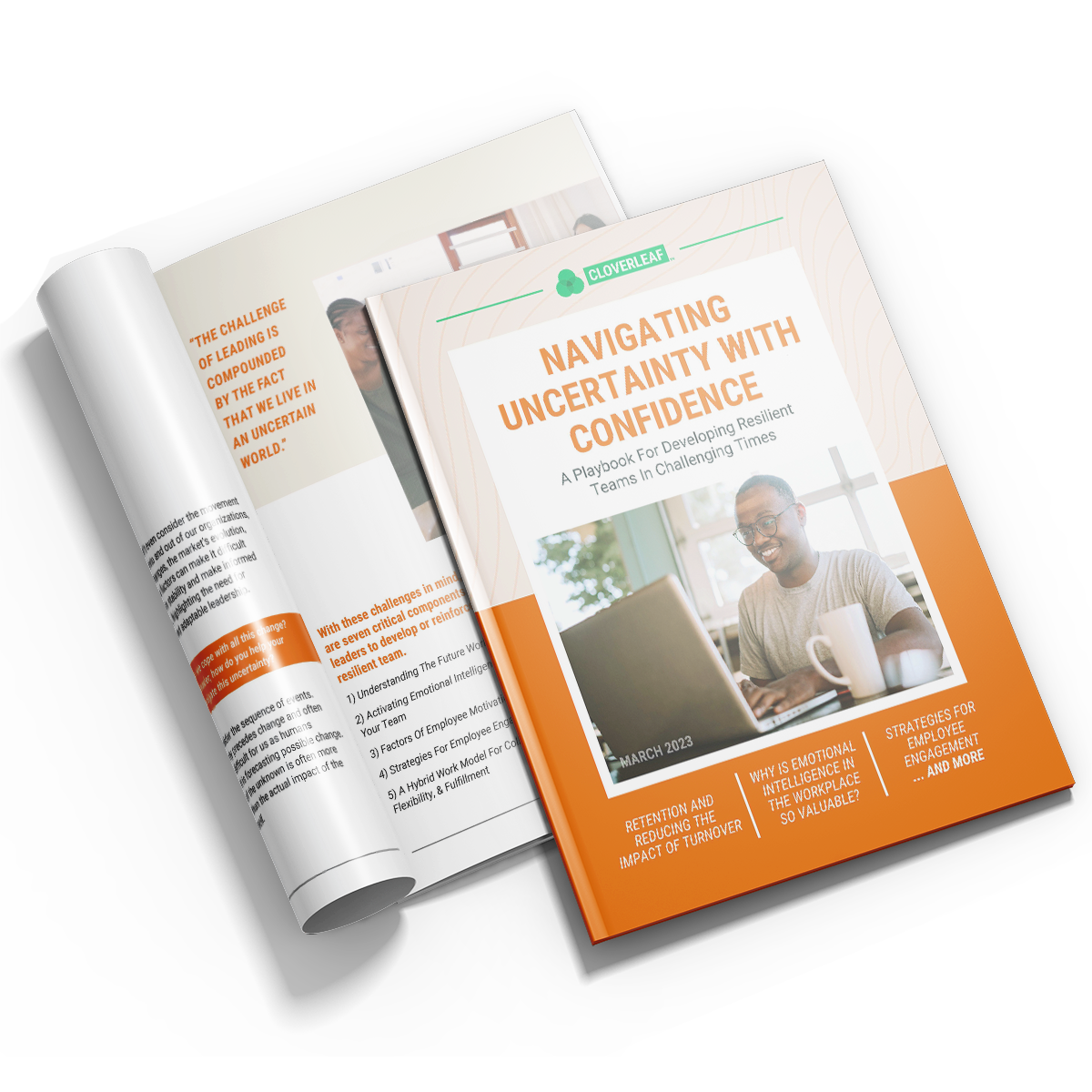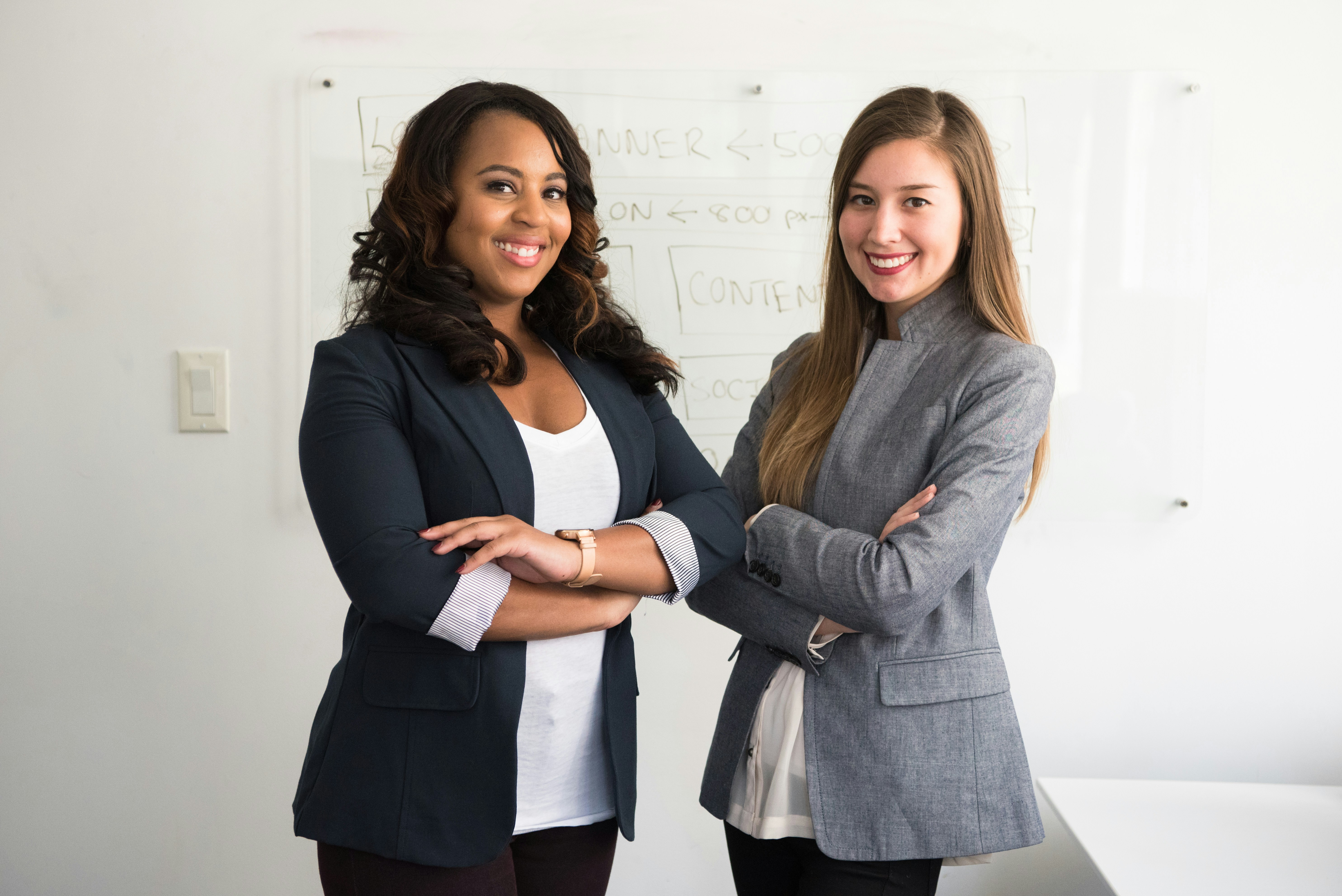The key defining factor of the future workplace experience is a more human experience. It has less to do with the built environment and everything to do with the culture that we create that puts humanity at the center of decision-making, process, technology, and strategy.
The global economy (and even starker in the US) has undergone a massive transition to a knowledge-based economy.
This shift can be easily illustrated by the chart below, demonstrating that the value of the S&P 500 has moved dramatically from hard assets to intangible assets – value is created by taking team strengths, skills, and experiences and combining them to create value.


Free Playbook For Creating An Engaging Employee Experience even During Challenging Times
- What The Future Workplace Looks Like
- How To Activate Emotional Intelligence Within Your Team
- Factors Of Employee Motivation
- Strategies For Employee Engagement
- A Hybrid Work Model For Collaboration, Flexibility, & Fulfillment
- The Power Of Coaching In The Workplace
- How To Reduce The Impact Of Labour Turnover
7 Factors That Are Changing The Workplace
1. Tasks Are Increasingly More Complex
Many modern workplaces require employees to work on complex tasks requiring diverse skills and knowledge. Collaboration allows employees to pool their expertise and work together to find solutions.
2. Adaptability Requires Innovative Efforts
A culture of collaboration encourages the sharing of ideas and fosters an environment conducive to innovation. When people work together, they can build on each other’s ideas and develop new and creative solutions.
3. Speed and Efficiency Are More Accessible
The ability to promote information sharing can help reduce duplicated efforts and streamline processes. Additionally, collaboration allows for delegating tasks to team members who are best suited for them, which can help optimize the use of resources and increase efficiency.
4. The Workforce Is Globalized
With the increasing globalization of businesses, collaboration is essential to effectively communicate and work with people from different cultures and backgrounds.
5. Remote Work Is Normal
The remote working trend is increasing, and many companies are now hiring employees from different locations. Collaboration tools and technologies make it possible for remote teams to work together effectively, despite the physical distance between team members.
6. Employees Care About More Than Just A Paycheck
Employees today also care about work-life balance, flexibility, and the opportunity to grow and develop their skills. In short, employees want to feel that their work is not just a job but an extension of who they are and what they stand for.
7. An Emphasis On Well-Being
Burnout is becoming a significant problem in today’s fast-paced, high-stress work environment. As the understanding of the impact of mental health on overall well-being has grown, organizations are recognizing the importance of creating a workplace culture that prioritizes employee well-being.
Because of these broader factors, the future workplace experience has to put humanity first. This means a stronger focus on how we work and, more importantly, how we work together.
The Future Workplace Experience Demands Collaboration
The future workplace experience is less about a physical experience and more about an emotional experience that supports the employee’s well-being. One that fosters trust and creativity to elevate individuals working with others in a collaborative environment to create something valuable for the world.
Bruce Springsteen said the following about teamwork concerning his band managing the creative process in collaboration.
A rock band is a social unit based on the premise that all of us together is greater than the sum of our individual parts. We can achieve something that we could not achieve alone, and together higher ground awaits. While in our band, the songs and vision are mine; the physical creation of that vision into a real-world presence belongs to all of us. We are a band. The joy I feel when working with our band is hard to describe. Ideas tumble around the room; people talk over one another, there are false starts and stops, and confusion often reigns. And then suddenly… dynamite.
Like a band creating music together, collaboration allows us to create something truly valuable for the world.
Teams open themselves up to new perspectives and ideas when they work together. This collaborative process is not only productive but also fulfilling. It’s not always easy; the process can be messy and chaotic, but the result can be exceptional if teams push through it.
Collaboration is not only a means to an end; it’s a way to connect, grow, and achieve more than we ever thought possible.
A winning workplace experience establishes a culture conducive to sharing ideas, working together, and flexibility to support efforts that are cognitive by nature.
7 Essential Characteristic Of The Future Workplace
1. DIVERSITY
The raw materials for value creation are unique viewpoints, lived experiences, ways of processing information, and new perspectives.
2. INCLUSIVITY
It isn’t enough to be diverse; leading companies find a way to celebrate and meld these differences into a winning formula.
3. ADAPTABILITY
Organization structures must allow for quick adjustments and a flexible decision-making process that allows for rapid iteration.
4. INDEPENDENCE
Proactive performance allows employees to work from anywhere, anytime, as long as they meet their objectives and deliverables.
5. EMPOWERMENT
The rise of agile approaches and self-managed teams isn’t coincidental – they were born of necessity as they empower employees to take ownership of their work, make decisions, and take the initiative, which leads to increased creativity, productivity, and job satisfaction.
6. TRANSPARENCY
Trust is a key currency of collaboration. It is the grease that makes the gears turn. Transparency is a fundamental building block for trust. It is essential for fostering an environment of mutual understanding, respect, and open communication, where all team members can work together effectively towards common goals.
7. EMPATHY
An emotionally supportive environment isn’t just an organizational expectation; it is a relational expectation of managers and peers to understand the challenges particular to the things that make us human.
The future workplace experience is less about a physical environment and more about a culture that puts humanity at the center of decision-making, process, technology, and strategy.
The shift towards a knowledge-based economy has led to a greater emphasis on collaboration and knowledge work, requiring leaders to adapt their management approach and create a culture that fosters trust, creativity, and innovation. Embracing these values to create a more human-centered workplace can result in greater efficiency, improved performance, and better business outcomes.
It is now a non-negotiable to foster mutual understanding, respect, and open communication, where all team members can work together effectively towards common goals. By embracing these values and practices, leaders can create a workplace that present and future employees more willingly embrace.







